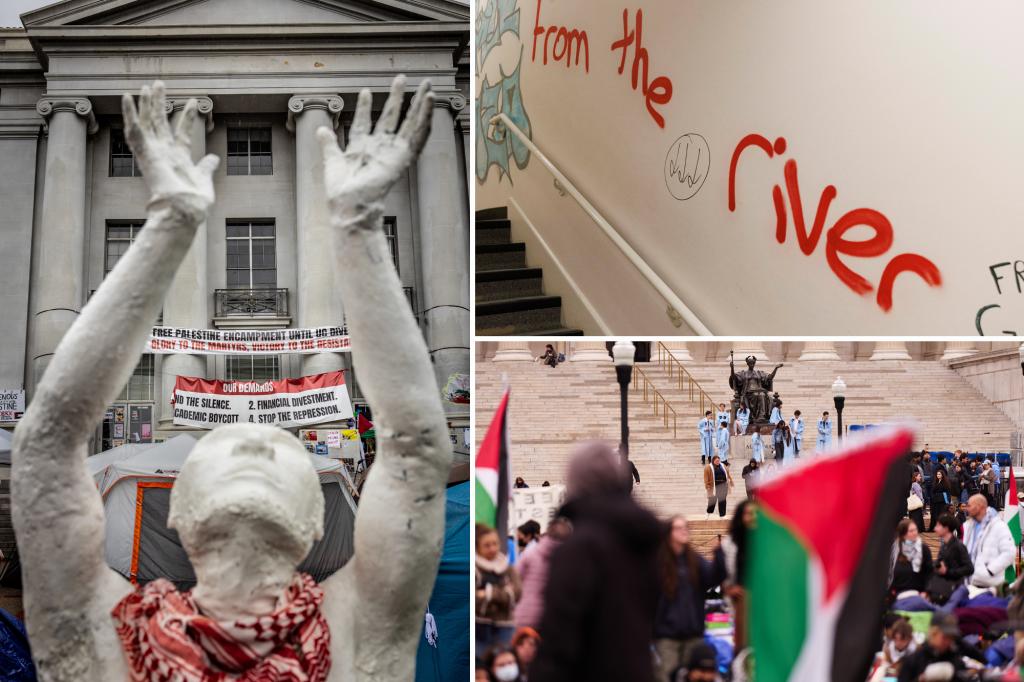The US Department of Education, under the direction of former President Trump, launched investigations into five universities, including Columbia University, Northwestern University, Portland State University, the University of California, Berkeley, and the University of Minnesota, Twin Cities. These investigations stemmed from allegations of widespread antisemitic harassment on college campuses during the spring of 2024, coinciding with a surge in anti-Israel protests nationwide. The protests, triggered by Israel’s response to Hamas’ October 7th attack, often escalated into heated confrontations between pro-Israel and anti-Israel factions, with some incidents turning violent. The Department of Education’s Office for Civil Rights initiated the investigations under Title VI of the Civil Rights Act of 1964, which prohibits discrimination based on national origin and shared ancestry in federally funded programs.
The impetus for these investigations stemmed from a perceived inadequacy of previous responses to antisemitism on college campuses. Craig Trainor, the Trump-appointed acting assistant secretary for civil rights at the Department of Education, criticized the Biden administration’s handling of similar incidents, characterizing their resolutions as “toothless” and ineffective in holding institutions accountable. Trainor emphasized the Department’s commitment to combating antisemitism and ensuring the safety of Jewish students. This action aligned with an executive order signed by President Trump shortly before the investigations, directing federal agencies to identify all available legal avenues to combat antisemitism, including potential deportation of students on visas found to have engaged in antisemitic activities.
Columbia University became a focal point of the national debate on antisemitism on college campuses. The university’s Students for Justice in Palestine chapter initiated a series of anti-Israel encampments, which were subsequently replicated across the country. These encampments, operating around the clock, demanded university divestment from Israel and companies supporting Israel. Protests at Columbia included marches with chants deemed antisemitic by some, escalating into more serious incidents involving the occupation of a campus building and clashes with authorities. While arrests were made, no enrolled students faced expulsion, though some received temporary suspensions.
The encampments, referred to as “Liberated Zones,” persisted for two weeks before being dismantled by police. While briefly resurrected during alumni weekend, the sustained protests subsided with the arrival of the fall semester. However, these events significantly impacted the university, with donations reportedly declining by a substantial 29%, amounting to approximately $21.4 million. The university’s handling of the situation drew criticism from some Jewish members of the Columbia community, who accused the administration of failing to adequately address the issue of antisemitism on campus. This criticism, coupled with the escalating national attention to antisemitism in higher education, contributed to the Department of Education’s decision to investigate.
The Department of Education’s investigation focused on whether the universities had failed to adequately address alleged antisemitic harassment, thereby creating a hostile environment for Jewish students. This scrutiny extended to the universities’ responses to the anti-Israel protests and encampments, examining whether they effectively protected Jewish students from harassment and intimidation. The investigation also sought to determine whether the universities’ actions, or lack thereof, contributed to a climate where antisemitism was tolerated or even fostered. The underlying principle of the investigation was to ensure that universities fulfilled their obligation to provide a safe and inclusive learning environment for all students, regardless of their religious or national origin.
Columbia University, responding to the investigation, reiterated its condemnation of antisemitism and all forms of discrimination. The university emphasized its commitment to creating a campus environment free from violence and hate speech. While acknowledging the seriousness of the allegations and the ensuing investigation, Columbia maintained its commitment to working with the federal government to address the issue of antisemitism and ensure the safety and well-being of its community. The university’s response reflected a broader challenge faced by institutions of higher education in balancing free speech with the need to protect students from harassment and discrimination. This delicate balancing act requires universities to develop and implement effective policies and procedures that address hate speech and ensure a welcoming environment for all students.

